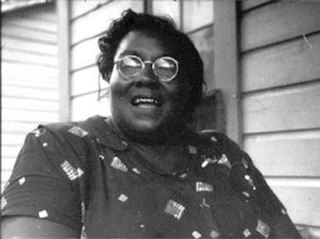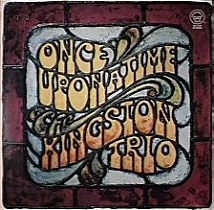
Huddie William Ledbetter, better known by the stage name Lead Belly, was an American folk and blues singer notable for his strong vocals, virtuosity on the twelve-string guitar, and the folk standards he introduced, including his renditions of "In the Pines", "Goodnight, Irene", "Midnight Special", "Cotton Fields", and "Boll Weevil".

Woodrow Wilson Guthrie was an American singer-songwriter and composer who was one of the most significant figures in American folk music. His work focused on themes of American socialism and anti-fascism. He inspired several generations both politically and musically with songs such as "This Land Is Your Land".

Alan Lomax was an American ethnomusicologist, best known for his numerous field recordings of folk music of the 20th century. He was a musician, folklorist, archivist, writer, scholar, political activist, oral historian, and film-maker. Lomax produced recordings, concerts, and radio shows in the US and in England, which played an important role in preserving folk music traditions in both countries, and helped start both the American and British folk revivals of the 1940s, 1950s, and early 1960s. He collected material first with his father, folklorist and collector John Lomax, and later alone and with others, Lomax recorded thousands of songs and interviews for the Archive of American Folk Song, of which he was the director, at the Library of Congress on aluminum and acetate discs.

Bob Dylan is the debut studio album by the American singer-songwriter Bob Dylan, released on March 19, 1962, by Columbia Records. The album was produced by Columbia talent scout John H. Hammond, who had earlier signed Dylan to the label, a controversial decision at the time. The album primarily features folk standards but also includes two original compositions, "Talkin' New York" and "Song to Woody". The latter was an ode to Woody Guthrie, a significant influence in Dylan's early career.

"Goodnight, Irene" or "Irene, Goodnight," is a 20th-century American folk standard, written in 3
4 time, first recorded by American blues musician Huddie 'Lead Belly' Ledbetter in 1933. A version recorded by the Weavers was a #1 hit in 1950.

Jelly Roll Morton: The Complete Library of Congress Recordings is a 2005 box set of recordings from jazz pioneer Jelly Roll Morton. The set spans 128 tracks over eight CDs. It won two Grammy Awards in 2006, Best Historical Album and Best Album Notes.

Dust Bowl Ballads is an album by American folk singer Woody Guthrie. It was released by Victor Records, in 1940. All the songs on the album deal with the Dust Bowl and its effects on the country and its people. It is considered to be one of the first concept albums. It was Guthrie's first commercial recording and the most successful album of his career.

Adell Hall Ward, better known as Vera Hall, was an American folk singer, born in Livingston, Alabama. Best known for her 1937 song "Trouble So Hard", she was inducted into the Alabama Women's Hall of Fame in 2005.

The Tin Angel is Odetta & Larry's only album, and the first recording by Odetta, originally released in September 1954 on Fantasy Records.
"Rock Island Line" is an American folk song. Ostensibly about the Chicago, Rock Island and Pacific Railroad, it appeared as a folk song as early as 1929. The first recorded performance of "Rock Island Line" was by inmates of the Arkansas Cummins State Farm prison in 1934.

American singer-songwriter Woody Guthrie's published recordings are culled from a series of recording sessions in the 1940s and 1950s. At the time they were recorded they were not set down for a particular album, so are found over several albums not necessarily in chronological order. The more detailed section on recording sessions lists the song by recording date.
"Take a Whiff on Me" is an American folk song, with references to the use of cocaine. It is also known as "Take a Whiff ", "Cocaine Habit", and "Cocaine Habit Blues".

The Asch Recordings, recorded between 1944 and 1949, are a series of albums featuring some of the most famous recordings of US folk musician Woody Guthrie. These sessions were recorded by Moses "Moe" Asch in New York City.
Harriet Elizabeth "Hally" Wood was an American musician, singer and folk musicologist. She worked with John and Alan Lomax and participated in the publication of songbooks for the works of artists like Lead Belly and Woody Guthrie. She also performed as a singer and recorded solo and collaborative albums with folk singers such as Pete Seeger.
"The House of the Rising Sun" is a traditional folk song, sometimes called "Rising Sun Blues". It tells of a person's life gone wrong in the city of New Orleans. Many versions also urge a sibling or parents and children to avoid the same fate. The most successful commercial version, recorded in 1964 by the British rock band the Animals, was a number one hit on the UK Singles Chart and in the US and Canada. As a traditional folk song recorded by an electric rock band, it has been described as the "first folk rock hit".

Once Upon a Time is a live album by the American folk music group the Kingston Trio, recorded in 1966 and released in 1969. It was originally released as a double-LP with a three-page booklet and reached number 163 on the Billboard Pop Albums chart. The lead-off single was "One Too Many Mornings" b/w "Scotch and Soda".
"Good Shepherd" is a traditional song, best known as recorded by Jefferson Airplane on their 1969 album Volunteers. It was arranged and sung by the group's lead guitarist Jorma Kaukonen, who described their interpretation of it as psychedelic folk-rock.

Woody Guthrie's Blues is an album by American folk musician Ramblin' Jack Elliott, released in 1956 in Great Britain.

James "Iron Head" Baker and Moses "Clear Rock" Platt were African American traditional folk singers imprisoned in the Central State Prison Farm in Sugar Land, Texas. The men made a number of field recordings of convict work songs, field hollers and other material with John Lomax for the Library of Congress Archive of American Folk Music in the 1930s.












